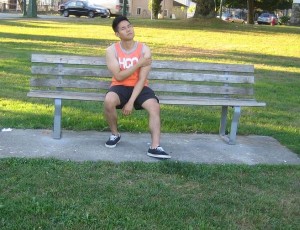The rotator cuff is comprised of 4 muscles and tendons that attach them to the bones in the shoulder. The rotator cuff is responsible for connecting the upper arm bone to the shoulder blade, thus allowing the individual to lift the arm out to the side and rotates it away from and toward the body.
Issues with the rotator cuff include tears in the muscle or tendons and tendinitis. These problems can abruptly develop due to an injury or steadily worsen over time. Damage to one or several of the rotator cuff can trigger pain, diminished mobility and weakness or a clicking sensation in the shoulder.
Pain
Pain is usually the initial sign of a rotator cuff injury and varies depending on the cause. When it comes to traumatic injuries to the rotator cuff, they can cause abrupt, piercing shoulder pain.

Overuse of the rotator cuff muscles usually cause damage that tends to worsen over time. This is considered common with sports and activities that require constant overhead movement, especially while lifting heavy objects. This movement pinches on the tendons which connect to the muscles of the rotator cuff.
Pain due to overuse is similar to a profound ache that becomes worse at night time, especially if he/she frequently reaches overhead throughout the day. Take note that this pain may be infrequent early on. As the damage progresses, he/she can end up with shoulder pain even while at rest. The pain can radiate to the side of the upper arm and affect sleep, especially if the individual is used on lying on the sore side.
Diminished mobility
The shoulder is a ball-and-socket joint. Aside from moving the arm, the rotator cuff helps keep the bones that meet at the shoulder in their proper positions. Diminished shoulder mobility is a typical symptom of rotator cuff injury.
In most cases, the individual might not be able to lift the arm to the side, reach behind the back or rotate the arm outwards to grab the seatbelt. The movement can become limited due to the pain, especially with rotator cuff issues that develop over time. Severe injuries such as a tendon tear make it hard for the individual to move the arm in a particular direction.
Weakness
Damage to the rotator cuff muscle can lead to weakness, especially when reaching overhead. Once the individual lifts the arm out to the side, there is a perceivable hike in the shoulder up to the ear. This is the attempt of the body to utilize other muscles instead of damaging the rotator cuff muscles. The individual will also notice this when attempting to brush the hair or reach a high cupboard.
In addition, there is also weakness when rotating the arm away from or towards the body. This can cause difficulty with certain activities such as putting on a bra or belt, tucking a shirt into the pants or turning a steering wheel.
What are the other symptoms?
An issue with the rotator cuff can oftentimes cause a clicking sensation in the shoulder especially during certain movements such as rotator the arm away from the body to reach behind the back or lifting the arm to the side. There is also a crunching or cracking sensation that can be heard as well as felt. This can occur once the injured tendons rub against the bones in the shoulder joint.
When to seek care
A doctor should be consulted if the symptoms might indicate one of the rotator cuff injuries or if there is shoulder pain that persists for more than a few days, particularly if it disrupts with daily activities. Rotator cuff issues that develop over time can heal with medications and physical therapy. In case the injury is due to trauma, it is best to seek immediate medical care. As for severe injuries such as a torn tendon, it often requires surgery.
